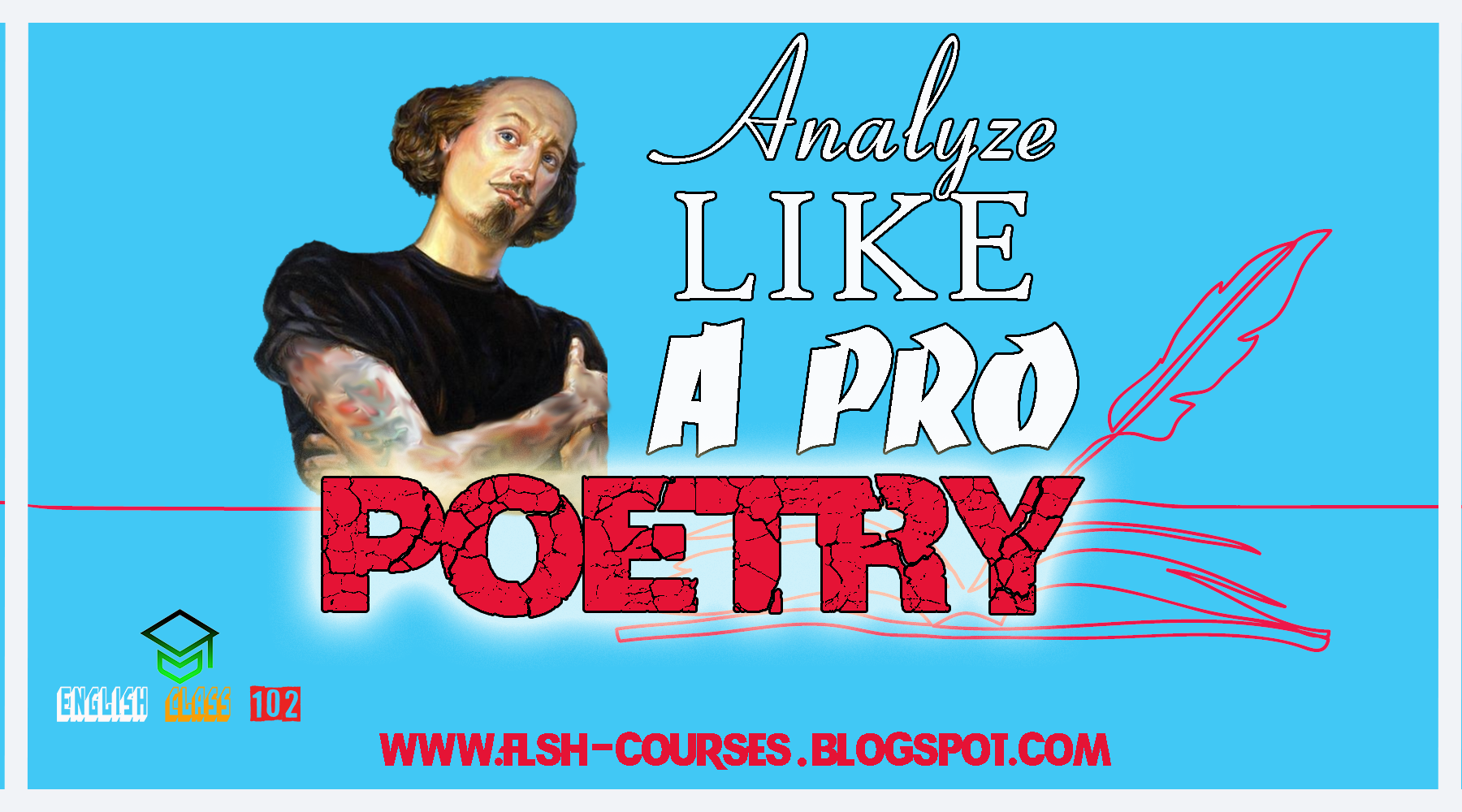It is necessary to analyze the poem in an author's work. The analysis is very simple and easy to acquire let's GOoO!!!:
// POETIC ELEMENTS //
Stanza : stanzas are a series of lines grouped together and separated by an empty line.
Rhyme : is the repetition of a similar sound in poetry.
Meter : is the main basic rhytmic structure of a verse or lines in verses.
Caplets : two lines that must rhyme.
Sound : it includes rhymes and other patterns.
Foot : is a basic unit, it usually contains one stressed syllabic and at least one unstressed syllabic .
Tetrameter : it has 4 bits only
Pentameter : it has 5 bits only
Ballad : story that is written in verse and it is usually 4 first lines .
The Haiku : (Japanese Origin) short poem made of 3 lines within 7/5/7 syllables (unit made of consonant and vowels) usually written in present tense,and words would not be repeated with no rhyme.
Sonet : it has a 4/4/4 form and a caplet .
Free Verse : it doesn't Rhyme,and sound and verses are important
Ryme : it accurs when sounds agree at the end of each line
1. Author and title of the poem
It is very
important to study a brief extract about the poet in order to understand his background
and his biography so you get to expect what he is going to present in his poem,
additionally you should never neglect the title because it is a very a significant
element in your journey of analysis.
2.The history of the creation of the poem
(when it was
written, for what reason, and to whom it is dedicated).
The place of the poem ,time, hero .That is going to make you spot the movement and its characteristics from the extract you will be given the day of exam.
3.Theme,main idea
(what is the poem is all about). If the poet belongs to any literary group: symbolist, , futurist, then it is necessary to select examples proving that we the work of a symbolist poet, or futurist. Quotations to the poem itself supporting your conclusions at the end
4.The Composition of a Lyrical work
It is necessary:
- to spot the leading experience: feelings, mood always effect the poetic work;
- to find out the harmony of the compositional construction: its subordination
to the expression of a certain thought;
- determine the lyrical situation presented in the poem (the hero's conflict
with himself; the hero's inner lack of freedom, etc.)
- determine the life situation that, presumably, could cause this experience;
- highlight the main parts of a poetic work: show their connection (determine
the emotional "drawing").
The composition of the poem, its division into stanzas (how does the meaning of
the poem relate to its division into stanzas).
Does each stanza represent a complete thought, or does the stanza reveal part
of the main thought.
The meaning of the stanzas is compared or contrasted.
Is the last stanza significant for revealing the idea of the poem, does it
contain a conclusion.
Settings : when and where a story takee place.
characters : people and animals in the story.
Plot : important events and actions in the story.
Conflict : the big problem to solve.
Narrator : the person telling the story .
Theme : the story's message.
Mood : how the story feels for the reader .
Tone : the author's tone shows the author's attitude toward details in the story.
5.Literary diction
Romanticism, realism, surrealism, symbolism,
sentimentalism, avant-gardism, futurism, modernism, etc...
If you follow these instructions in addition to your poems you have ,you will get your grade and you won't need any external help everything that an English stud
ent need to analyse a poem the day of the Exam....Good Luck !!!



